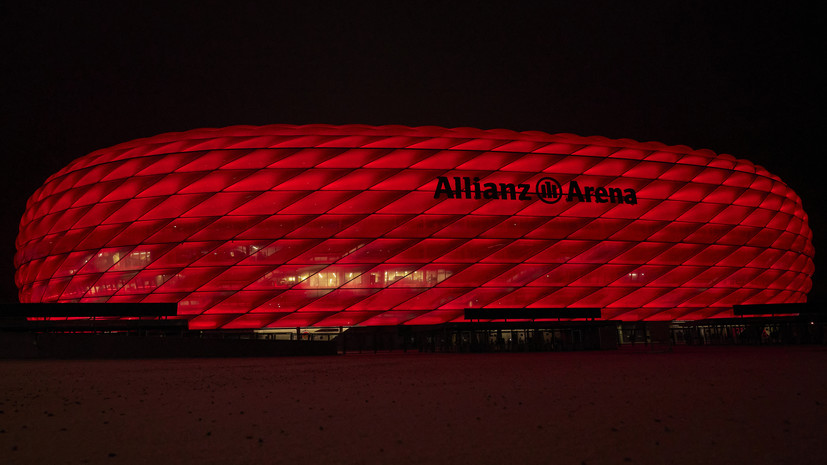The energy crisis developing in Europe will affect all spheres of society, including sports.
Therefore, the leadership of the leading football leagues is actively discussing the impending problems.
In some countries, they did not shelve the matter, starting to take measures to reduce the costs of clubs, since the costs of teams have already changed.
At the end of August, the average price of electricity in several EU countries reached a new all-time high and exceeded €700 per MWh, while in France this figure at the moment exceeded €1,000 per MWh.
Problems with the supply of hydrocarbons are exacerbated by abnormal heat and drought in the region, as well as a reduction in electricity generation at nuclear power plants.
At the same time, in the sports sector, a significant part of the energy is spent on lighting stadiums, therefore, according to experts, an effective way to save money will be to reduce the operating time of floodlights.
This is what we decided to do in Serie A.
From the fifth round of the Italian championship, equipment is allowed to be turned on at full power for no more than four hours, and for daytime matches, floodlights can be lit 60 minutes before the starting whistle, and not 90, as it was before.
It is impossible to completely abandon lighting in the daytime, since it is required for the high-quality operation of the VAR system.
According to experts, these measures will reduce the lighting time for stadiums by a quarter.
“We have only taken the first step.
Light is fundamental in stadiums, but we felt it right to reduce the lighting of venues as much as possible before and after matches in order to significantly reduce energy consumption,” said Serie A President Lorenzo Casini.
Discuss possible measures in France.
Thus, the Minister of Sports, Amelie Oudea-Kastera, proposed to transfer all evening competitions to the daytime.
However, experts doubt the prospects of such an option, since it will ultimately cause difficulties for fans, clubs and holders of the rights to broadcast the competition.
In Germany, energy saving measures are already in full swing.
At the same time, they also considered the option of transferring matches to the daytime, and negotiations are underway in this direction, but the main broadcasters are not yet ready to broadcast games earlier due to large television contracts.
However, during the day it is impossible to completely abandon the spotlights.
They are needed for a better picture.
Another stumbling block is the VAR system.
Goalline detection technology in the Bundesliga, like in Serie A, only works properly when there is sufficient lighting.
Freiburg feels relatively comfortable in Germany.
The club's new stadium, opened in the fall of 2021, has 6,200 solar panels installed, despite the fact that the city is considered the sunniest in the country.
This indicator is surpassed only by the arena of the Istanbul Galatasaray, which has 10.4 thousand such batteries.
Other clubs are not so lucky, and everyone independently thinks out how to cut costs.
Thus, Borussia Dortmund is developing a concept that allows heating the arena with fuel oil and the use of warm water from the mine tunnels surrounding the stadium.
At the Allianz Arena in Munich, red outdoor lighting is only on for three hours after dark, instead of six as before.
Gas lawn heating was replaced by air-heat pumps.
Solar panels are also installed here, but their number is less than at Freiburg, so you have to save money by turning off the hot water in the toilets.
In addition, the operation of ventilation and air conditioning has been reduced throughout the complex.
The Borussia Mönchengladbach Stadium is now lit up green only on match days instead of the whole week.
Football players of the first team have to crowd during recovery procedures after training.
Players go through them in the same room with reservists and youth.
Werder Bremen have switched off the refrigerators in the catering area of the stadium, and now they only work during matches.
Hoffenheim is trying to save money on the internal lighting of the arena and parking.
And the team's training in winter will take place at noon, so that the gas heating of the lawn does not have to be used at full capacity all the time.
Approximately half of the 18 Bundesliga stadiums have already been converted to LEDs.
Although they are more expensive than conventional halogen spotlights, they are significantly cheaper to operate and have a longer life.
At the same time, not all clubs can change equipment themselves.
So, "Eintracht", "Mainz", "Köln" and "Hertha" just rent the arena and must persuade the owners to make additional expenses for the sake of future savings.
The biggest problems, of course, will begin in the winter, when you have to turn on the lawn heating at full capacity.
According to the specialized magazine Stadionwelt, a day of using the system today costs about €2,000.
So German clubs are now even happy to host the World Cup in Qatar in the winter.
Thanks to the World Cup, the pause in the Bundesliga will be ten weeks: from November 13 to January 21.
However, it is possible that at the beginning of the second half of the season, games in frost and snow will have to be transferred.

